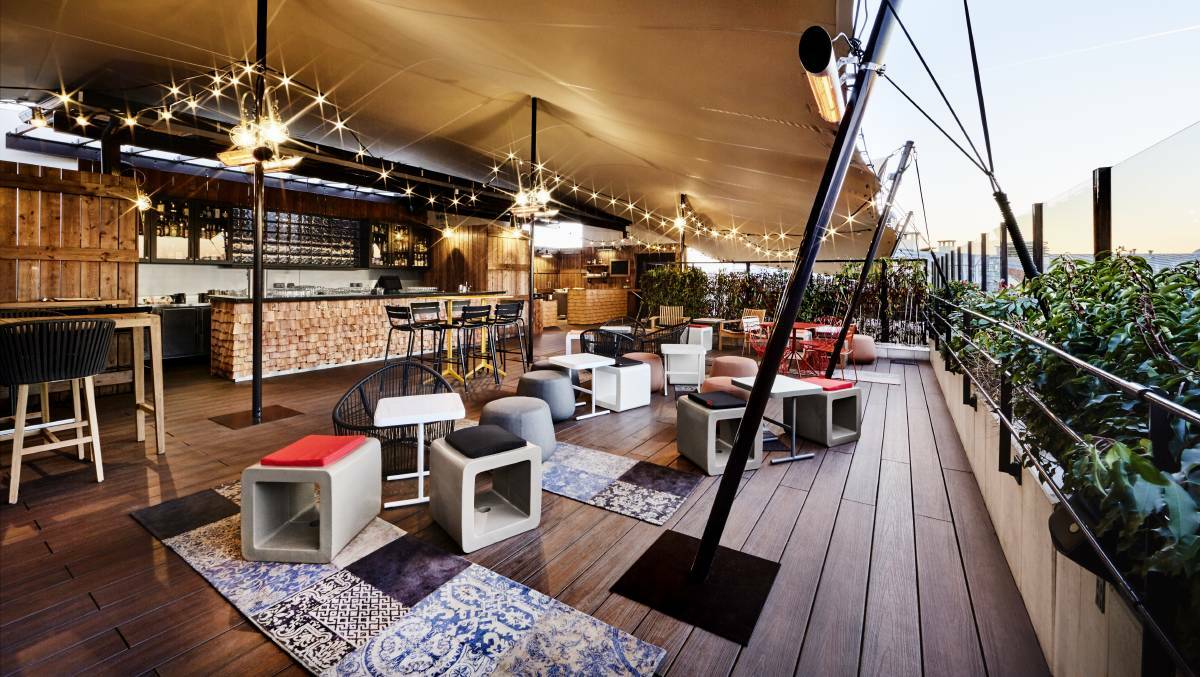We were several hours into the karaoke night when I realised it was time for me to leave. It wasn’t simply that a group of drunk Australians had decided to butcher Daryl Braithwaite’s The Horses, much to the annoyed confusion of all the other nationalities in the bar. It was also because it was approaching midnight and I was starting to feel like a pumpkin – and not just that, a pumpkin surrounded by young boisterous backpackers.
Create a free account to read this article
$0/
(min cost $0)
or signup to continue reading
I had found myself, for a project I was working on, staying at a new hostel called Wombats in Venice, Italy. It had a great location and the facilities were modern and comfortable. But, as the beers had flowed and the singing had progressed in the hostel’s bar, I had started to feel my age. I am not even 40 yet but, with so much youthful exuberance on display, I wondered if I was too old to be staying at a hostel.
Heading back to my room, I walked through the other common area, this one more peaceful than the bar. As I looked around, I saw a group of travellers, everyone at least two decades older than me, playing cards and drinking red wine. It reminded me that only that morning I had also seen a family with three children eating breakfast in the hostel – I had made a mental note that the father took more Nutella than seemed appropriate. The card players, the condiment-loving family … perhaps I needed to give more thought to the question of how old is too old to be staying at a hostel.

Have you noticed the way they’re not called youth hostels anymore? Like me, their ”youth” is a thing of the past. Across the world, there is an increasing number of accommodations marketing themselves as ”hostels” – but as part of a deliberate strategy to appeal to more than just backpackers.
These hostels are not simply trying to expand to older people who are looking for cheaper accommodation. In fact, in many cases, it may be more expensive to stay at a hostel than a nearby budget hotel. This is because many hostels are increasing the number of private rooms that they’re offering – and people choosing to stay here are not motivated by price. The guests are of all ages, right across the wealth demographic, travelling for business and leisure. They’re looking for something that standard hotels don’t always offer – community.

Travel can be lonely sometimes. You might be on the road for a long time, or on a solo trip, or just the kind of person who likes to always meet new people. It’s hard to do that locked away in your hotel room. And I’m sure a meaningful conversation with a stranger over a martini at the hotel bar is just a thing of scriptwriters’ imaginations.
But at a hostel – well, that’s a different story. Conversation is not a blunt tool wielded awkwardly by the desperate. It flows naturally as you wait for the washing machine to finish thrashing your laundry (don’t travel with delicate clothing!), as you make a sandwich in the kitchen … or even as you join in the karaoke at the bar, now that I come to think of it.

Hostels have traditionally been designed to funnel guests into the common areas. In the old days, when most of the rooms were dormitories full of snorers and smelly socks, it was much more comfortable to read your book on a couch in the lounge room. If there was someone else doing the same, you would normally exchange some small talk and, as was often the case, you would soon find yourself deep in conversation and maybe even planning to do some exploration together the next day. I remember many occasions before we all travelled with the resources of the entire internet in our pocket where I would sit with other backpackers at a hostel for hours, comparing notes and planning travels based on each other’s advice.
These days, we’re more likely to be staring at a screen, but modern hostels have accepted that and created spaces for coworking where business travellers or digital nomads can spend time on their laptops in a communal environment. The expansive bar areas may get rowdy in the evenings with trivia nights and other pub games, but during the day they serve healthy meals that suit a range of tastes.

The good hostels based in the heart of tourist areas will often offer free city tours and other opportunities to explore the city with like-minded guests. Increasingly, modern hostels are holding activities and creating spaces that aren’t defined by alcohol or the debauchery you may once have associated with traditional backpackers.
As I headed back to my room after the karaoke night in Venice, I realised that may have been where I made my mistake. I had reverted to my youth where the goal of most evenings had been to imbibe as much as possible – hence my current pumpkin-like sense. But the rest of my time in the hostel had been conversations, shared stories over a bowl of cereal, jokes told with coffee in hand, community.
I’m not too old for this hostel. I’m just too old to do hostels like I used to. As I passed, I smiled at the group of 60-somethings with their red wine and cards, realising they’d already worked this out. When they smiled back, it was as though they’d read my mind. We are the reasons they’re no longer called ”youth” hostels.




